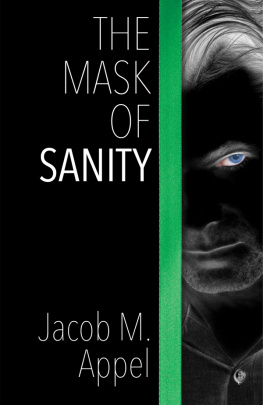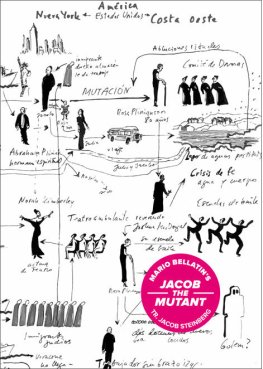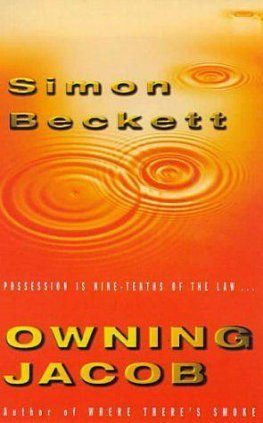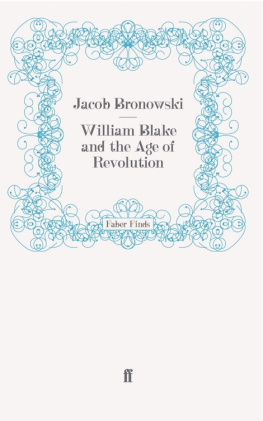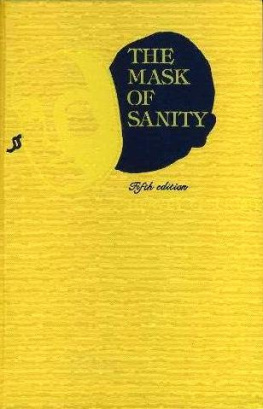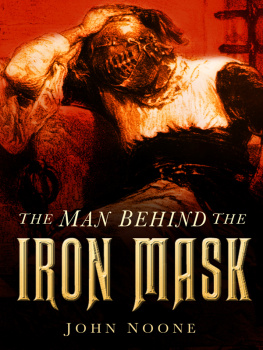Jacob M. Appel - The mask of sanity
Here you can read online Jacob M. Appel - The mask of sanity full text of the book (entire story) in english for free. Download pdf and epub, get meaning, cover and reviews about this ebook. year: 2017, genre: Detective and thriller. Description of the work, (preface) as well as reviews are available. Best literature library LitArk.com created for fans of good reading and offers a wide selection of genres:
Romance novel
Science fiction
Adventure
Detective
Science
History
Home and family
Prose
Art
Politics
Computer
Non-fiction
Religion
Business
Children
Humor
Choose a favorite category and find really read worthwhile books. Enjoy immersion in the world of imagination, feel the emotions of the characters or learn something new for yourself, make an fascinating discovery.
- Book:The mask of sanity
- Author:
- Genre:
- Year:2017
- Rating:5 / 5
- Favourites:Add to favourites
- Your mark:
- 100
- 1
- 2
- 3
- 4
- 5
The mask of sanity: summary, description and annotation
We offer to read an annotation, description, summary or preface (depends on what the author of the book "The mask of sanity" wrote himself). If you haven't found the necessary information about the book — write in the comments, we will try to find it.
The mask of sanity — read online for free the complete book (whole text) full work
Below is the text of the book, divided by pages. System saving the place of the last page read, allows you to conveniently read the book "The mask of sanity" online for free, without having to search again every time where you left off. Put a bookmark, and you can go to the page where you finished reading at any time.
Font size:
Interval:
Bookmark:
THE
MASK
OF
SANITY
Jacob M.
Appel

Copyright 2017 by Jacob M. Appel
All rights reserved. No part of this publication, or parts thereof, may be reproduced in any form, except for the inclusion of brief quotes in a review, without the written permission of the publisher.
For information, address:
The Permanent Press
4170 Noyac Road
Sag Harbor, NY 11963
www.thepermanentpress.com
Library of Congress Cataloging-in-Publication Data
Appel, Jacob M., author.
The mask of sanity / Jacob M. Appe.
Sag Harbor, NY : The Permanent Press, [2017]
ISBN 978-1-57962-495-8
eISBN 978-1-57962-524-5
PS3601.P662 M37 2017
813'.6dc23
2016053018
Printed in the United States of America
For Rosalie
AUTHORS FOREWORD
S ociopaths or psychopathsthe two terms are largely interchangeablehave long been familiar to readers of Western literature. From Shakespeares Iago to Camuss Meursault, these men and women are not merely villains, but villains lacking any moral compass. Rather than being victims of derangement who cannot tell the difference between right and wrong, they are self-interested and calculating creatures who recognize the difference, but simply do not care. During my career as a psychiatrist in New York City, including time spent working in a state forensic facility, I have come to know a number of individuals who wear what the late Hervey M. Cleckley, once the worlds foremost authority on sociopathy, termed The Mask of Sanity, yet at their cores proved incapable of feeling empathy or compassion for their fellow human beings. What follows is an effort to capture as authentically as possible the mind-set of one such miscreant.
Too often, literature encourages us to imagine these amoral villains as dwelling along the margins of society, clinging to the lowest rungs of the economic ladder like Dostoyevskys Raskolnikov. Only recently, especially as a result of the exposure of gross misdeeds in the financial services industry and of large-scale Ponzi schemes, has the public become aware that many amoral individuals lurk in the highest echelons of power, be it business, law, and even in medicine. They are all around us, smiling and perpetrating evil.
ACT I
CHAPTER ONE
K illing, Balint discovered, was the easy part. Not killing required discipline and restraint. Whether his medical career had inured him to death, or his steady constitution enabled him to suppress his emotions, or merely the sheer depth of his need for his wife and his hatred for Warren Sugarman transcended all moral barriers, he grew to see the slayings as a routine matter, even a mundane nuisance, like his four weekends each year as the on-call cardiologist at the hospital. Never, not even with his hands choking the life from innocent strangers, did he experience any guilt. At worst, he suffered a nagging fear of future guilt: the apprehension that hed one day find himself overcome with remorse and confess for no good reasonlike Raskolnikov or Leopold and Loeb. Then even these worries faded, leaving behind only the fact of his crimes. All of this occurred much later, of course: after hed committed himself irreversibly.
His transformation from conscientious physician to calculating assassin had seemed impossible only nine months earlier, on the rain-swept Saturday afternoon when hed accidentally run over the brindled dachshund and then watched like a stranger as his own life came untethered from its moorings. Hed been driving home from Hager Heights, following lunch with his mother and stepfather. Amanda had begged offas she often didclaiming a toothache. Their girls were away at summer camp. Balint recalled being in particularly bright spirits that day, because his promotion to section chief had been approved only the week before, which made himat thirty-fourthe youngest head of any medical division at Laurendale-Methodist Hospital. And then, out of a forsythia hedge, bolted the hapless dog.
On a clear day, he might have stopped in time. In a steady downpour, the brakes of the Mercedes squealed until the animal bounced off the grille.
He was traveling east on Meadow Drivetaking the shortcut between Chestnut Street and Hamilton Boulevardwith no other vehicles in sight. To his left sprawled the country club, where a flock of Canada geese sheltered itself at the edge of the golf course. To his right, thick hedges protected a row of upscale homes; farther along the road, the shrubbery gave way to a wall of whitewashed brick. Balint sat in the vehicle for several minutes, waiting for the shock of the collision to subside. Surely, if anyone had witnessed the accident, theyd have come to offer help. Nobody did. That meant absolutely nothing prevented him from abandoning the dachshund to its fate and driving off. Escape was the rational response to the situation, he told himself. Instead, he did the right thing.
The dog lay unconscious, but breathing. Blood had colored its left eye crimson and a bone protruded through the fur below its left front knee. The luckless animals body shivered, either from cold or pain. Balint wrapped the creature inside his sport jacket. Rain matted his shirt to his chestand it struck him, too late, that the water might cause his hospital pager to malfunction. His initial intention had been to carry the beast back to his car and to drive it to the emergency room. Yet as Balint lifted the heavy, sopping body, he suddenly recalled that Sugarman, the transplant surgeon, lived hardly a block away. In an instant, he made the decision that would lead to so many others, and he carried the bleeding animal around the corner toward Sugarmans house.
Sugarmans son and his own older daughter attended the same grade at Laurendale Prep. Amanda and the boys mother played tennis together. Over the past several years, a friendship had arisen between Balint and his colleaguenot an intimate friendship, but a convivial relationship built around common circumstances and shared worldviews and overlapping social circles. Both men had graduated from Columbia within three years of each other and from its medical school in the same class; both attended the same synagogue on High Holidays. When Balint ran into Sugarman on the ward service, he enjoyed his coworkers easygoing good cheer. In all likelihood, if Balints daughters married someday, Sugarman would attend the weddings, although the surgeons recent, bitter divorce threatened to complicate the seating chart. At the same time, if Sugarman vanished suddenlyaccepted a job in a different state or even burst an aneurysmBalint couldnt say that hed have suffered any genuine sense of loss. What mattered at the moment was that Sugarman lived nearby, and that he might be capable of stabilizing an injured dog.
Later Balint reflected on how many unfortunate contingencies led to what transpired next. After all, had the asphalt been dry, or had he left his mothers place only seconds earlier, he might have avoided the smashup entirely. Or he might not have recollected that Sugarman lived on Meadow Court. Or he might have decided that a transplant surgeon could offer little service to an injured canine. An infinite number of other possibilities might have happened; what actually did happen was that he approached Sugarmans driveway, his forearms straining under the weight of his cargo, and he spotted a familiar silver Saab sedan parked beneath the basketball hoop. Again he had an opportunity to avoid calamityto return to the main road and go in search of help. Instead he stole around the side of the building.
Sugarmans backyard looked almost indistinguishable from his own: a slate patio equipped with a kettle barbecue, a swing set, a vegetable patch ringed with chicken wire. All that differentiated the surgeons property was the absence of a swimming pool. Despite the pelting rain, Sugarmans sprinklers ran at full tiltlikely on a timer.
Next pageFont size:
Interval:
Bookmark:
Similar books «The mask of sanity»
Look at similar books to The mask of sanity. We have selected literature similar in name and meaning in the hope of providing readers with more options to find new, interesting, not yet read works.
Discussion, reviews of the book The mask of sanity and just readers' own opinions. Leave your comments, write what you think about the work, its meaning or the main characters. Specify what exactly you liked and what you didn't like, and why you think so.

